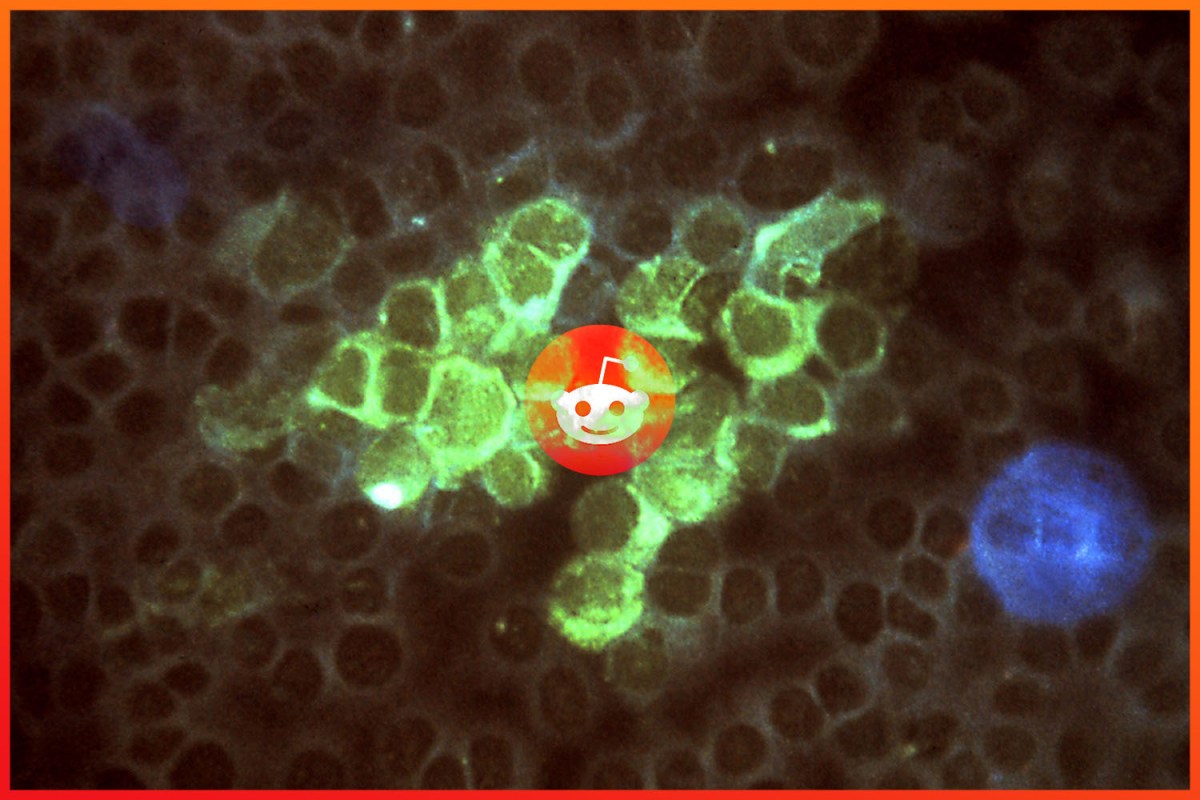Harvey Friedman is one of the world’s leading herpes researchers. In recent years especially, his lab at the University of Pennsylvania has garnered fanfare in both the medical world and popular press for its work on a first-of-its-kind genital herpes vaccine. This new protective treatment has shown astounding potential in animal tests, and Friedman and his team will move on to early stage human trials in the near future. But despite his profile, and the apparent promise of his big vaccine research project, like most scientists, Friedman finds himself in constant need of cash.
One of Friedman’s key funding sources is grants from the National Institutes of Health; they’ve provided about $500,000 in annual direct support for his vaccine project since 2019. “And you can do a lot with that,” he told InsideHook, “but it has to support a lot of people and supplies.”
Government funding can also dry up rapidly, thanks to changing political winds. So even with steady state funding, researchers often can’t meet their ideal budgets, and may as such have to work much slower, or at a smaller scale, than they’d like. They also run the constant risk of going into total progress paralysis if a once-reliable grant suddenly shrinks or dries up entirely.
Biotech and pharmaceutical companies will infuse giant gobs of cash into projects as well—if they believe the research could net them a profit. Friedman’s vaccine is apparently promising enough, and the market for it large enough, that he says a big firm plans to fund his team’s human trials. “But nothing is easy or sure when it comes to finding funding,” he stresses.
So, when the moderators of a Reddit community dedicated to following herpes prevention and cure research reached out to Friedman a couple years back, asking if they could raise money to support his vaccine research, he was open to the prospect. Why turn away much needed cash?
The University, which coordinates donations, was not as hot on the prospect, though. “They said they generally don’t do crowdfunding to support research, because it’s a lot of hassle for small donations that don’t add up to much,” Friedman recalls. But Friedman somehow convinced them to take a chance. And his willingness to work with these Redditors paid off far more than he’d ever expected. “Their $5s and $10s somehow added up to $10,000s, then $100,000s,” he says.
To date, the group has raised over $350,000 to support Friedman’s vaccine research. This sum is nowhere near the cash infusion of a big grant, or industry backing, he acknowledges. But it has allowed him to fill gaps, investing in resources his existing budget would cover, which will help him speed up and strengthen his work — like hiring two new full-time staff to work on the study.
This is not the first time this Reddit community, HerpesCureResearch, has raised sizable chunks of cash to support a researcher — and it likely won’t be the last. Their unique and striking success in mobilizing popular support for the often tedious and obscure process of developing new drugs may offer a template for other groups of scientists or laypeople, creating a small but potent new stream of funding for research with the potential to help people with any number of conditions.
But this template comes with a host of potential pitfalls that could hurt research as much as help it, experts told InsideHook. So scientists and everyday folks eager to help out with projects like the search for a herpes vaccine ought to approach initiatives like this with a degree of caution.
Why Don’t We Already Have A Herpes Vaccine?
“The need for a genital herpes vaccine is immense,” Greg Smith, an expert on herpes viruses, told InsideHook, given the disease’s shocking prevalence, and its potential to upend lives.
Most estimates suggest that at least one in eight people in America have HSV-2, the herpes virus strain that usually causes genital herpes. About half of all Americans have HSV-1, which usually causes cold sores but can cause genital herpes if the virus enters the body through a mucous membrane, or a cut or abrasion in the skin, on or near a person’s genitals rather than their mouth.
Once the virus enters our bodies, it sets up shop inside clusters of nerves on either side of the spine, where both our immune system and doctors won’t chase it, for fear of damaging our central nervous system. The virus lays dormant for long stretches of time, then ventures back out into nearby skin and mucous membranes, again evading people’s immune systems and spreading. It is, in other words, a particularly clever and resilient bugger. Which is part of why over 80 years of vaccine and cure research have not been able to yield any tangible results.
“My personal impression is that many people have kind of given up” after so many failed attempts, Terri Warren, a nurse practitioner who runs a clinic dedicated to herpes treatment. So researchers and funders alike direct more attention to what they see as more promising fields.
Researchers and funders may also be hesitant to devote cash and energy to herpes because, from a purely physical-medical perspective, it’s not a big deal. Sure, it can cause some life-threatening complications in a few exceedingly rare situations. But almost nine out of ten people with HSV-2 don’t have a diagnosis, often because they’ve never developed any symptoms, or whatever symptoms they have are so faint, like a light itch in an infected area, that they don’t register as an issue. (This is a big part of why herpes is so common: It can spread even when people are not noticeably symptomatic — and via skin that even external condoms don’t cover. People who know they have herpes, know how the disease works, and know how it manifests for them, can usually effectively mitigate transmission risks. But that kind of awareness is exceedingly rare.)
When people do develop the symptoms we typically associate with herpes — painful blisters that take weeks to heal — they usually suffer one bad initial outbreak, then either never have another, or only experience recurrences rarely, with decreasing severity and frequency over time. Those who do have regular and notable outbreaks often find that they can minimize the discomfort of their symptoms through basic stress reduction tricks and other lifestyle management practices, or with over-the-counter medications. Americans have also had access to a handful of drugs for 40 years, which can be taken daily to reduce the risk of outbreaks, or at the start of an outbreak to reduce the length and severity of symptoms. (However, it’s worth noting that not everyone can access those drugs, or will take them on a regular basis. And they definitely cannot cure herpes.)
“The hardest part of having herpes for most of my patients is the burden of the stigma around the condition,” explained Melissa King, a counselor who helps people navigate STI diagnoses.
This stigma is a relatively recent social invention. It was born of 20th century moral panics about promiscuity that’ve led to the baseless yet shockingly persistent notion that people who contract STIs are dirty and irresponsible. And it’s exacerbated by the spread of wild misinformation about the effects of the virus. A 2020 survey found, for example, that at least two out of five Americans believe herpes is deadly; only about one in four can actually visually identify herpes.
The stigma around herpes is so strong that it can lead to real harms, like people staying in bad relationships because they think no one else would ever want them. And folks are clearly willing to pay for even the faint hope of ridding themselves of the virus and all the baggage that comes with it. “People who spend thousands on things that don’t work, like getting ozone infused into their bodies, in an attempt to cure themselves,” says Anna Wald, a herpes virus researcher.
But stigma and its effects are often presented as purely social-mental issues, best addressed via education and culture change, community support and therapy. The ultimate lack of a sense of raw medical urgency, alongside the trickiness of herpes as a virus means that, as Warren put it, “funding for herpes cure or prevention research sucks — it’s frustratingly under-funded.”
Governments and companies do still spend millions of dollars on herpes research every year. But as Smith, the herpes researcher, points out, most of that money goes into studies on how the virus itself operates — the kind of fundamental science with potentially broad, general applications. Smith added that the scientists who direct funding also tend to be a bit stodgy and conservative, so the funds that are earmarked for cure and prevention research usually go towards conventional projects, with even promising “novel ideas sometimes having trouble getting off the ground.”
A Masterclass in Scientific Crowdfunding
About a decade ago, inspired by the success entertainers found on early crowdfunding platforms in their efforts to support projects too unconventional or niche to receive traditional funding, a handful of hopeful researchers and entrepreneurs created a small ecosystem of sites exclusively for scientists. The idea being that these researchers could use crowdfunding as an alternative source of revenue, to get projects off the ground or carry them through rough patches until they could attract the attention of bigger funders. These new platforms were supposed to benefit early-career researchers, and people pursuing audacious or hard-to-sell ideas especially. As an added bonus, they would ideally increase public engagement in the complete scientific process.
These lofty aspirations never amounted to much. A recent review of research crowdfunding found that most campaigns only raised a few thousand dollars at most. The greatest success stories coming out of these platforms involved established researchers raising $10,000s. And the most successful campaigns generally involved a ton of effort by social media-savvy scientists who proactively built ties with small circles of people affected by whatever they were studying. This is why scientific research crowdfunding is still relatively rare — and likely why the University of Pennsylvania initially balked when Friedman put the Redditors’ offer on the table.
So how did the Redditors who reached out to Friedman buck this trend of tepid outcomes?
The secret sauce, according to Friedman, is the fact that this wasn’t a crowdfunding campaign created by a researcher who then had to build a community around it. He stressed that he, like many scientists, actually has no interest in that kind of initiative because “I don’t want to sell myself to raise money. I’ll write grants and do whatever I have to do. But that’s not the job.”
This was a campaign started by an established and active community of people with a deep and personal interest in herpes cures and prevention. As such, they were able to tap into circles of likely support, using their connections and activism tools to build and maintain momentum.
The mods of HerpesCureResearch explained that they set up their group in early 2020, rapidly growing into a small but active community of about 14,500 active users. Users, many of whom have herpes or are close to someone who does, occasionally share personal stories — but mostly they track and discuss every study or project they can find that involves work on potential vaccines to prevent, or treatments that could cure, herpes infections. As community members share a sense that herpes is chronically and unjustly neglected by key decision makers in the medical and public policy worlds, early on organizers decided that they wanted to find a way of advocating for more open discussions about the effects of herpes, and support for herpes studies.
Traditional and in-person activism wasn’t really an option, not just because they’re a small and dispersed digital community but also because many of them wish to stay anonymous in order to avoid heaping herpes stigmas upon themselves, and few have a ton of time or resources to spare. So, the community developed its Weekly Activism program, which the mods describe as “small and digestible activities people can do in five to ten minutes that [still] have a big impact.”
Weekly Activism usually takes the shape of sending messages to legislators, health officials, or other relevant figures, sharing personal stories and calling for general improvements “to the state of HSV testing and treatment, and [to support for] cure and vaccine research efforts.” But from the start, it’s also involved direct efforts to support what members see as promising research.
Before they reached out to Friedman, the group had already launched another crowdfunding campaign, for Keith Jerome at Fred Hutch, a Seattle-based research center. (Jerome was not available for comment for this story, but I have profiled him and his work before.) He has developed a novel gene editing tool with the potential to slip into herpes’ nerve cluster nest, destroy its genetic material exclusively, and thus disable the virus without any harm to its human host. Like Friedman’s vaccine, Jerome’s potential herpes cure has attracted a ton of attention, and a fair amount of funding — but not as much as would be ideal. (Jerome once told me he suspected this was at least in part because funders are most interested in research that uses one specific gene editing approach right now, while his technique uses a different approach that is far more effective, but also more time-intensive and expensive to work with, and less trendy.)
HerpesCureResearch reached out to Jerome, offering support, and he told them that they were welcome to donate to his efforts to assemble resources to run one last round of animal tests that he’d need to do before he could move on to human trials. By the end of 2020, the community had used its motivated member base, radial connections to other interested parties, and devotion to bite-sized acts of activism, to raise $100,00, which Jerome used to hire a research technician. As of 2022, they’ve raised over $550,000 for Jerome, which should fully cover his animal study. The community believes they have effectively accelerated Jerome’s research by up to two years, simply by providing him rapid access to research cash free of the usual bureaucracy and strings.
“We leveraged this success into our lobbying efforts and partner outreach,” the group’s mods told InsideHook. And into mobilizing support for other research projects, like Friedman’s, “so that we don’t put all our eggs in one basket, and spread the likelihood of [fueling] success.”
Warren, the herpes diagnosis and treatment specialist, learned about this group and its lobbying and fundraising efforts in 2021. She sees it as a fantastic example of the power of the public to get involved in science, especially in ways that empower patients to feel like they have some control over the future of research on and treatment of the condition’s they’re dealing with.
“What they’ve achieved is amazing,” she told InsideHook. But it’s not unique. Any group of concerned and personally invested citizens can build a similar community online. They can use the inherent networking potential of social media, and the accessibility of bite-sized activism, to harness shared passion and connection to an issue, transmuting it into small yet potent action.
When Populism Meets Science
While Warren is bullish about this group and its successful initiatives, Smith and many other scientists are far more lukewarm about the implications of this kind of crowdfunding.
Figuring out whether a scientific project has true potential is often a difficult process, even for experts, Smith points out. That’s a big part of why securing funding is often infuriatingly slow: allocation involves a lot of detailed deliberations. Crowdfunding, meanwhile, has a reputation for driving funds towards novel or flashy products, or towards the best social media-marketable story. All too often, the best project is not the one with the most popular appeal. So, some experts worry that crowdfunding efforts could put a spotlight on what turn out to be duds, which could leave donors feeling burned, leaving them less willing to participate in future advocacy work.
Traditional fundraising is also bureaucratic not just for the sake of bureaucracy, but in an effort to maintain transparency, both in where money came from, why it was granted, and how it’s been used. Popular crowdfunding runs the risk of becoming a funnel for dark money, or for the creation of networks of influence that leave researchers beholden to undisclosed parties.
By all accounts, HerpesCureResearch’s fundraising efforts haven’t fallen into any of these traps. Everyone who’s worked with the group, or reviewed their discussions, views them as a savvy community, capable of making informed decisions, and well aware of the risks of failure when they decide to back an initiative. And the community’s made it clear that they don’t want their support to come with any obligations on or expectations of researchers, besides basic updates on how their money is being spent. Friedman stresses that he’s never felt any pressure from anyone in the group. On the contrary, he says that interacting with group members, who share their stories of life with herpes, has given him new insights and motivation. And that has led him to start work on a therapeutic vaccine alongside the preventative vaccine he’d been developing.
“Working with the community has been a good experience for me overall,” he stressed.
But the community does, in its wider advocacy work, push a few goals that break from well informed scientific consensus. Notably, the mods told InsideHook one of their big goals right now is to improve the quality of herpes tests, and include them in standard STI testing batteries.
Public health bodies, researchers, and many clinicians do not regularly test for herpes for two main reasons: 1) Existing tests are far too unreliable, so routine testing would lead to a ton of false positives sending people into needless stress and despair, as well as false negatives giving people a false sense of security that could cause transmissions. 2) Even with more accurate tests, a positive herpes result only means that someone suddenly confronting all of the stigmas that come with a diagnosis. The spread of the disease by undiagnosed people is unfortunate, but from a purely physical-medical perspective not a huge concern. However, the harms that can come with a diagnosis are real. So, most experts conclude, routine testing does more harm than good.
Given the prevalence of bullshit health advice on Reddit and other social media platforms, it’s easy to envision groups with far more questionable views on health and diseases, and far less savvy and scruples than this unique group, copying its tactics to far less laudable ends.
Ultimately, Smith and others believe that groups like HerpesCureResearch ought to channel their activist potential not into fundraising for specific projects, or pushing specific solutions ideas, but instead into a general outcry for more, better, and more diverse herpes research funding. They could push, for example, the National Institutes of Health to set aside funds for innovative projects specifically, and solicit novel research proposals for expert review and selection.
Smith stressed that he still applauds the group’s efforts, as they have tangibly helped serious researchers pursuing promising projects. He and other cautiously skeptical observers just stress that researchers and laypeople alike ought to observe a well-established digital rule of thumb:
When you see anything medical online, be it advice or an initiative, approach with caution.
Whether you’re looking to get into shape, or just get out of a funk, The Charge has got you covered. Sign up for our new wellness newsletter today.






















